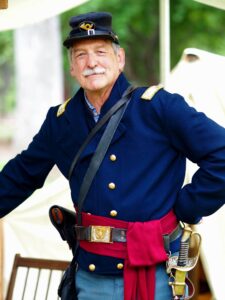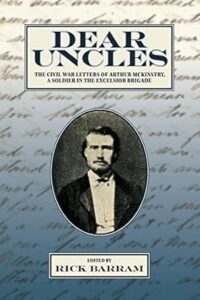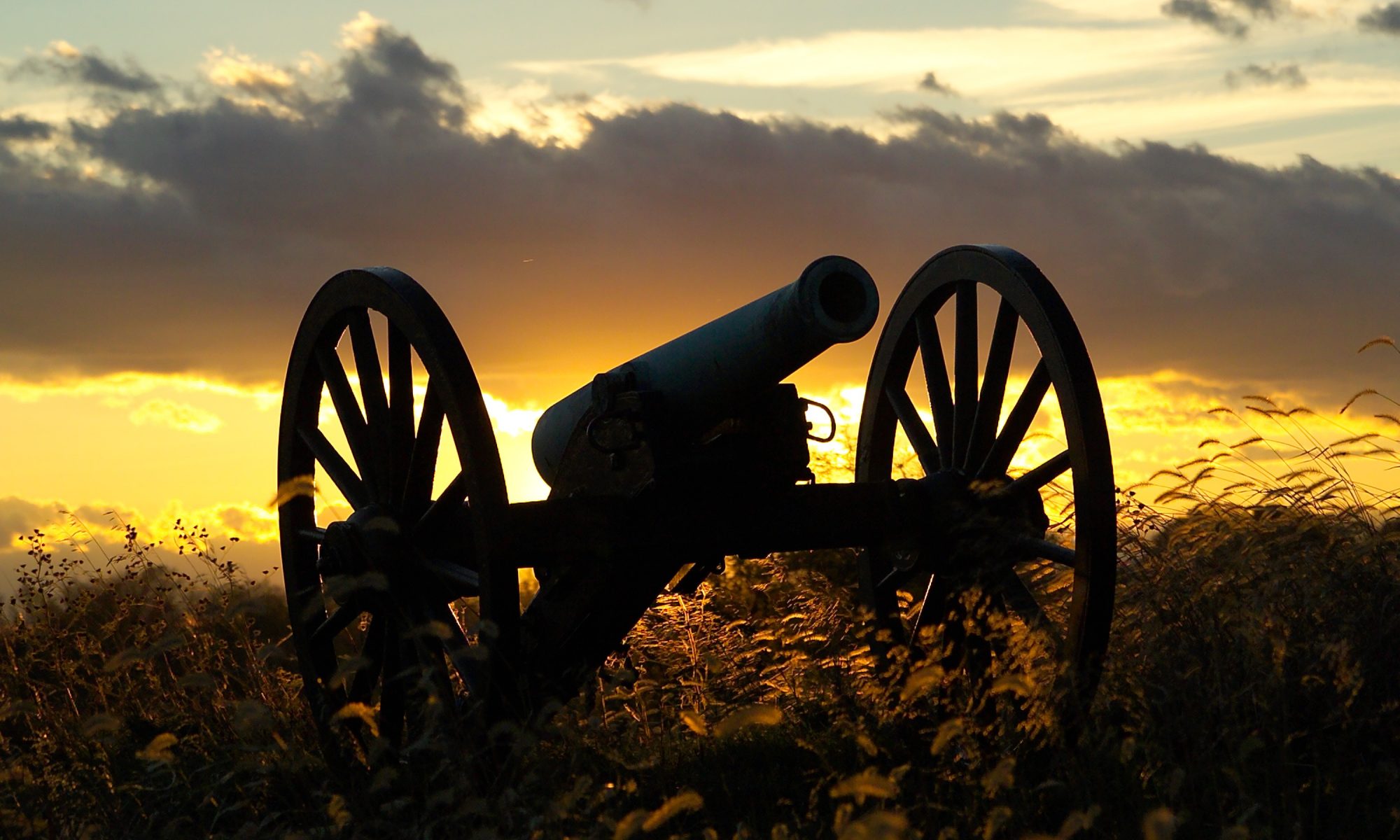October 14 , 2025
The Southern Maryland Civil War Round Table is pleased to announce that its next meeting will be held Tuesday, October 14, 2025 at 7:00pm at The Maryland Veterans Museum, 11000 Crain Highway North, Newburg, MD 20664.
Guest Speaker: Rick Barram

We invite you to join us this evening, as Rick Barram introduces us to Arthur McKinstry, a soldier in the Excelsior Brigade and “informal” war correspondent for his hometown newspaper.

Serving as an informal “war correspondent” for his uncles’ Fredonia Censor newspaper back home, Arthur McKinstry’s extraordinary and articulate letters offer an intimate and immediate picture of the common soldier’s everyday trials, tribulations, and minor victories while at the seat of war. “I have endeavored all along to make the Censor the military gazette of the county and I believe that I am succeeding,” penned Arthur.
Writing for Home will look at how citizens back in Chautauqua County received news of the war through McKinstry’s eyes; eyes keenly focused on the more than 500 men serving with the 72nd New York Infantry, part of the Excelsior Brigade.
Writing for Home will focus on the adventures of McKinstry and his Chautauqua County mates, set against the backdrop of their time occupying Lower Maryland, the U.S. Navy’s ongoing fight with Confederate artillery batteries along the Potomac’s Virginia shore and the often-incompetent command of General Daniel Sickles.
With the Union’s defeat at Bull Run, the regiment is hastily transferred to the defenses surrounding Washington D.C. As the threat to the capital abates, they relocate to what Arthur describes as the ‘doubtful part of Maryland’ along its Potomac shore. Here, in Charles County, M.D., the regiments of the Excelsior Brigade are charged with throttling secessionist trouble-makers while monitoring Virginia rebels across the river. Eventually, Arthur and the brigade are transported to Virginia’s Peninsula where the men of the regiment meet their baptism of fire at the battle of Williamsburg.
Letters to his mother reveal Arthur’s more personal thoughts and frustrations. Having grown up on a farm in western New York, Arthur is surprised and shocked at the harsh, rough-hewn conditions of life in Lower Maryland and the cruel reality of slavery’s human toll; a far cry from the idyllic scenes depicted in popular magazines and journals of the day.
Arthur’s journalist’s eye for detail and poet’s heart for drama combine to paint a rare portrait of the hardships, frustrations and joys, which formed brotherly bonds among volunteers who dutifully soldier on to restore a nation. This collection of more than 85 letters written over the course of a year also offers new insights into regimental organization, training, communications with home, and the often-overlooked attempt of Confederates artillerymen to blockade Washington D.C.’s critical Potomac River supply route.
Excerpts from Arthur’s letters:
- It rained nearly all day, and the mud was ankle deep all the way. We passed through the village of Piscataway, and I must say that I never saw its equal in any of the Northern States. Its appearance would indicate that it was built some time during the Revolution. The roofs of the houses are covered with moss, and the whole village presents a decayed appearance. Two thirds of the houses, a Northern farmer would not allow to disgrace his farm.
- …the Southern planter with his smiling family of domestics around him, over whom he exercises so mild and benevolent a sway, and who would go through fire and water for their beloved master– this picture, so charming in the perspective, upon nearer approach, fades away into a dirty-looking farmer, in a coarse suit of clothes of antediluvian cut, and a ragged parcel of chattels, who look eagerly to us for one ray of hope for their delivery from their present thralldom.
Ira Lewis, our ambulance driver said: “I am ready, to die for my country, but I don’t want to die here, for I don’t believe that any one buried in such a miserable soil as this would ever come up, not even at the call of the last trump.”
- Every time that an oyster boat passes, it is made a target for the rebel batteries, but as they do not hit them, it affords great amusement to the crews, who dance, yell and gesticulate in contempt of the gunners. Our guns sometimes reply, and beyond doubt with effect.
Since I wrote you last we have done another tour of picket duty and labored for a day in the trenches… We lay concealed in a deep ravine during the day and read whatever we could scrap together of books and papers, or ventured a quiet rubber at whist, while the rebel shells were crashing through the timber in our immediate vicinity. At night we were sent out in companies for the pickets to rally upon in case the enemy should press them hard. Company was posted upon a hill which was completely swept by the enemy’s guns and as they held the position without flinching until morning it is very remarkable that none were injured.

Rick Barram is an educator, lecturer, author with 30 years teaching experience in social science, specializing in United States, World and Military History.
Having purchased his first book on the Civil War while on a family vacation at age 11, his interest in history only grew from there. After being introduced to the hobby of Civil War reenacting 30 years ago, Rick took that interest to write two books on the subject, The 72nd New York Infantry in the Civil War and Dear Uncles: The Civil War Letters of Arthur McKinstry, a Soldier in the Excelsior Brigade. He has also written several magazine articles appearing in America’s Civil War, Civil War Times, Naval History and Guns of the Old West. He is also the editor of his reenacting club’s bimonthly newsletter.
Over the years Rick has given lectures on the subject of Civil War, not only around his home town of Red Bluff, California, but to audiences at the New York State Military Museum, Chautauqua County Historical Society, and the Delaware County Historical Association.
While not writing or pursuing his reenacting, Rick enjoys the retired life at home with his wife Rebecca and their two cats, Harley and Nimbus.
As usual, attendance is free, but membership is encouraged. Please feel free to contact us with any questions or concerns at bsunderland@somdcwrt.org.
